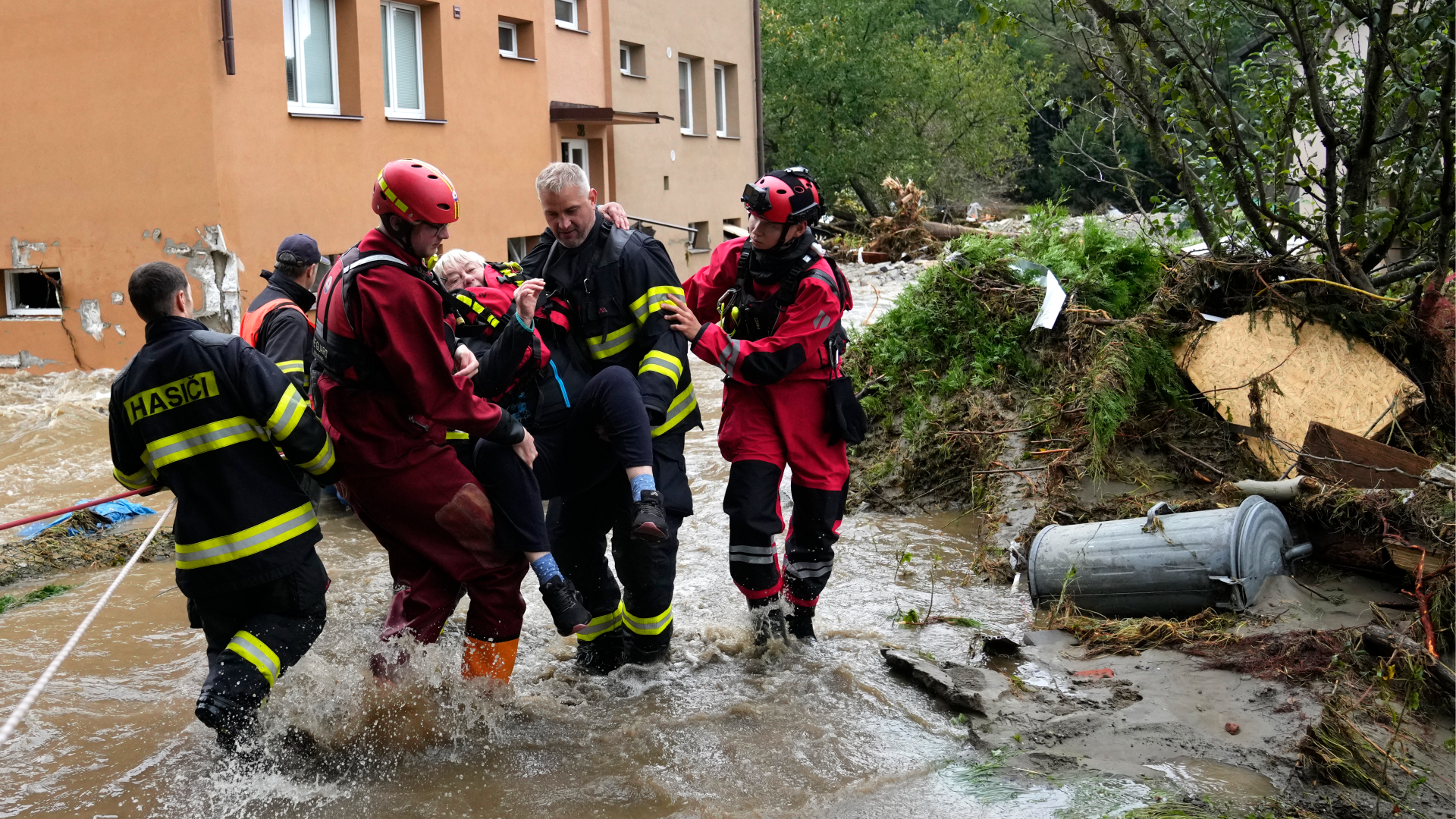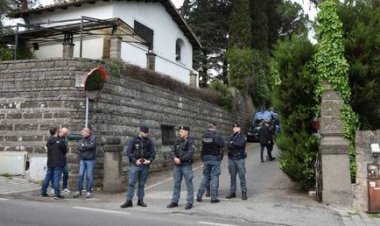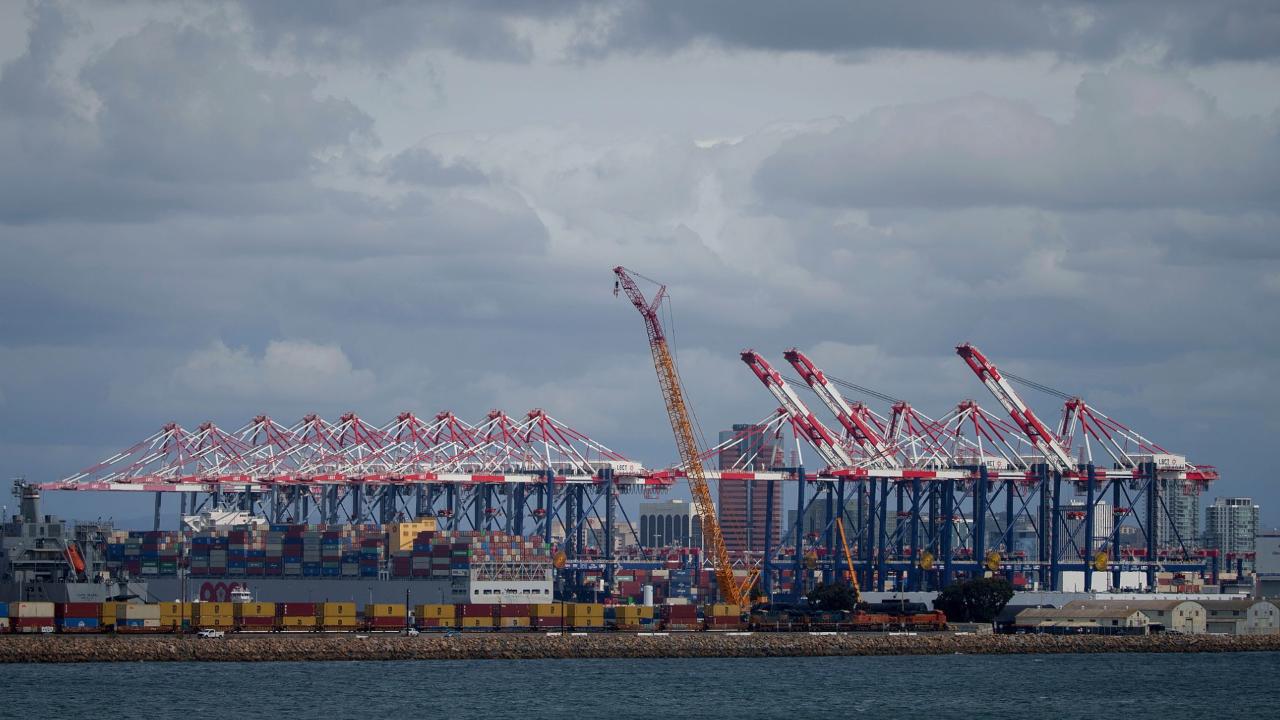Death toll increases amid evacuations due to rains and floods in Central Europe
On Sunday, the death toll continued to climb in Central European nations as a result of heavy rainfall over several days, which led to extensive flooding and the necessity for mass evacuations.

Countries like Austria, the Czech Republic, Poland, and Romania faced severe flooding, with Slovakia and Hungary potentially in line next due to a robust low pressure system migrating from northern Italy, which has been delivering unprecedented rainfall since Thursday.
Romania reported six fatalities, while Austria and Poland reported one death each. Additionally, the Czech Republic had four individuals reported missing, victims to the surging waters, according to police authorities.
Flood impacts and ongoing threats
The Czech Republic faced dire conditions with the most severe warnings issued at approximately 100 locations nationwide. The northeastern part was particularly hard-hit, having received the heaviest rain, notably the Jeseniky mountains near the Polish frontier.
Opava, a city of about 56,000, witnessed up to 10,000 residents seeking safety on higher grounds. Mayor Tomas Navratil emphasized the urgency, stating, "There's no reason to wait," as he recounted to Czech public radio how this year’s floods were surpassing the devastation of 1997's catastrophic floods.
The Czech Prime Minister Petr Fiala expressed a strong focus on life preservation. "We have to focus on saving lives," he announced on Czech public television, indicating that government discussions were imminent to evaluate the damages. He also cautioned that the worst might still be ahead.
While the President Petr Pavel shared a more hopeful stance, claiming, "it's obvious we've learned a lesson from the previous crisis."
Disruption and disaster response
Significant disruptions and evacuations were noted in various towns such as Krnov and Cesky Tesin. The waters in the Oder River were worryingly high, escalating the threat levels in Ostrava and Bohumin, with mass evacuations underway.
Ostrava Mayor, Jan Dohnal reported looming significant traffic issues, mentioning nearly halted train services in the region. The military was also deployed to assist in evacuating areas around the Jeseniky mountains, as stated by Jesenik Mayor Zdenka Blistanova to Czech public television.
Concerns intensified in Slovakia as approximately 260,000 homes were without electricity, and traffic disruptions, including the vital D1 highway, were reported.
Tragic incidents and state emergencies
In Lower Austria, a firefighter tragically lost his life after an accident occurred during flood response operations. As recounted by Dietmar Fahrafellner, head of Lower Austria's fire department, the entire region was declared a disaster zone, with a massive deployment of 10,000 emergency personnel aiding affected communities.
Governor Johanna Mikl-Leitner described the ongoing situation in Lower Austria as perhaps the toughest hours for many residents, reflecting on the widespread urgency and the potential for escalating disasters.
Additionally, Austria’s Chancellor Karl Nehammer noted after a crisis meeting that the situation was deteriorating. "We are experiencing difficult and dramatic hours in Lower Austria," said Nehammer, stating that readiness was in place to bolster the relief efforts with additional military support.
In other parts of Central Europe, Romania’s continued heavy rainfall led to further casualties, while Poland's Prime Minister Donald Tusk described a "dramatic" situation in affected areas, necessitating unusual rescues and heightened emergency responses, including potential satellite communications aid with Starlink due to disrupted local services.
The catastrophic weather follows a record-hot September, aligning with increased concerns about climate-induced extreme weather patterns, suggesting that a warmer atmosphere can intensify rainfall events.
Rohan Mehta for TROIB News
Find more stories on the environment and climate change on TROIB/Planet Health












